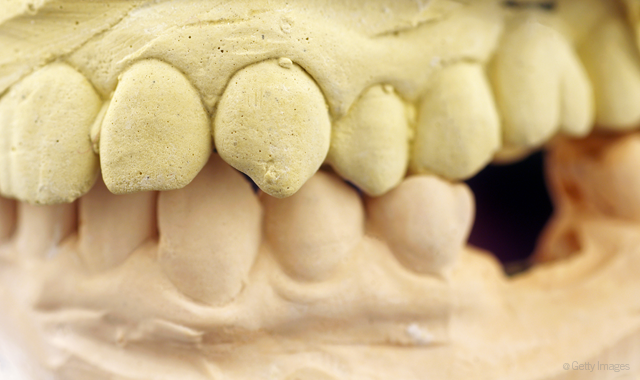New study finds troubling rates of dental implant complications
Any dental procedure comes with the chance of infection, but a recent study out of Sweden has discovered that patients with dental implants run a high risk – and that several contributing factors can exacerbate this risk.

Any dental procedure comes with the chance of infection, but a recent study out of Sweden has discovered that patients with dental implants run a high risk – and that several contributing factors can exacerbate this risk
The research out of the University of Gothenburg aimed to evaluate the correlation between dental implants, implant loss and peri-implantitis, a destructive infection that affects the tissue surrounding dental implants and can result in loss of supporting jawbone. Researchers also explored the relationship between periodontitis and rates of implant loss.
The study consisted of 4,716 randomly selected participants that had all had dental implants in 2003-2004. Researchers sent out a survey and received dental records and charts for 2,765 patients in the study. 596 patients were also examined at a nine-year follow-up appointment. The results found that almost eight percent of patients with dental implants experienced the loss of at least one implant within that timeframe.
More research on dental implants: New discovery can prevent dental implant infections
“Altogether, 7.6 percent of patients had lost at least one implant and 14.5 percent had developed peri-implantitis with pronounced bone loss,” reported Dr. Jan Derks, a researcher at Sahlgrenska Academy. 50 percent of patients presented with some signs of peri-implantitis, but only 14.5% were considered to have moderate to severe implications (equating to a crestal bone loss exceeding 2 mm). The 7.6 percent that had lost an implant showed an average loss of 29 percent of bone support.
Dr. Derks’ research also found that patients with preexisting periodontitis experienced an increased risk of peri-implantitis. Smoking was also identified as a risk factor contributing to early implant loss. The study also reported that “progression of peri-implantitis occurred in a non-linear, accelerating pattern, and, in the majority of cases, the onset of the disease had occurred early.”
More emerging research: Study finds protein can inhibit bone loss from periodontitis
Interestingly, the rate of implant failure did not differ between the general practice and specialty practices. “22% of all patients in the present sample received their implants in a general practice setting, and implant los in this subgroup was not different from outcomes in patients treated in specialist clinics,” the study stated.
“Peri-implantitis appears to develop within a few years and then progresses quickly at an accelerating pace,” said Dr. Derks. He hopes that the information gained from the study can help dentists minimize the risk of peri-implantitis and implant loss.
The full study can be found online here.
Oral Health Pavilion at HLTH 2024 Highlighted Links Between Dental and General Health
November 4th 2024At HLTH 2024, CareQuest, Colgate-Palmolive, Henry Schein, and PDS Health launched an Oral Health Pavilion to showcase how integrating oral and general health can improve patient outcomes and reduce costs.
Floss & Flip-Flops Episode 11: Diabetes Health Month
November 15th 2022Diabetes is a global disparity and most notably impacts those who are diagnosed as well as those with pre-diabetes or undiagnosed diabetes. Let’s discuss how to become better patient advocates in the screening, management and maintenance of diabetic cases.